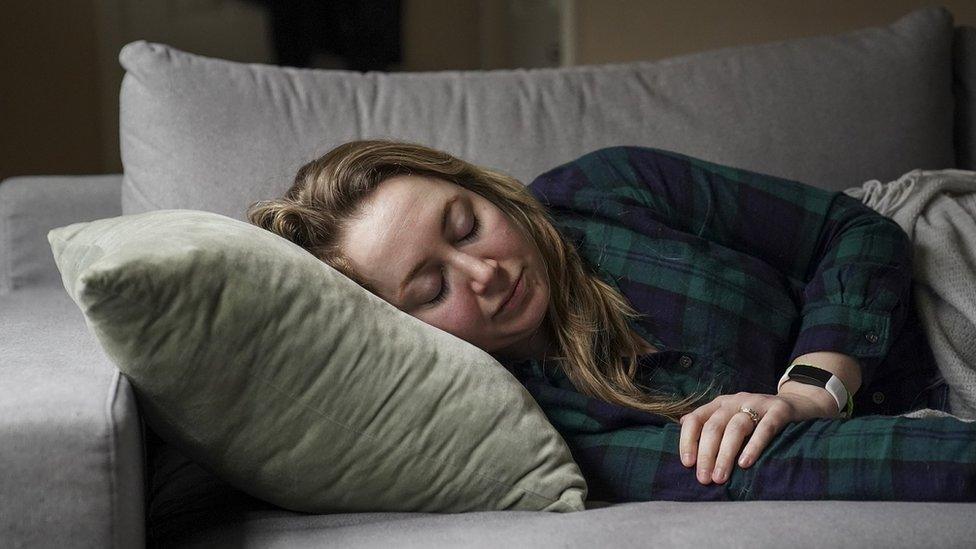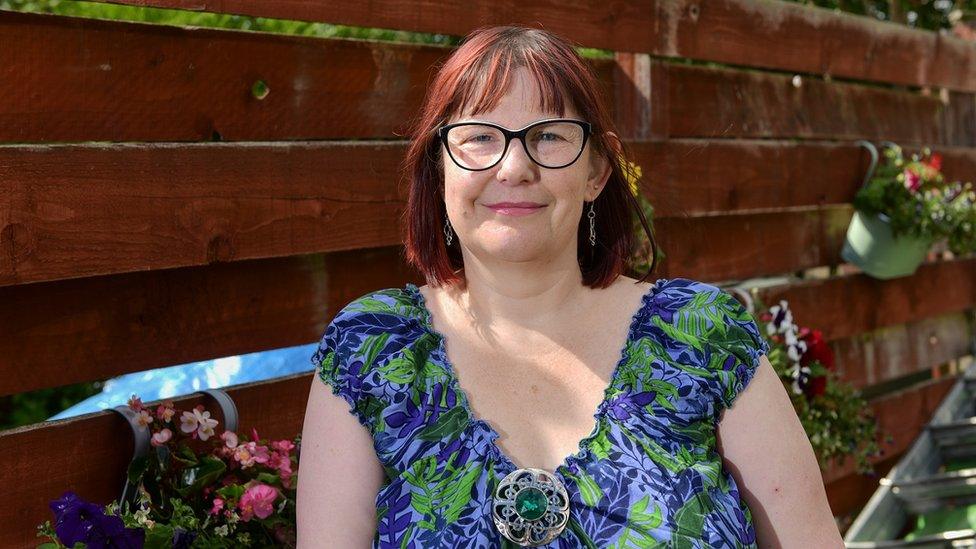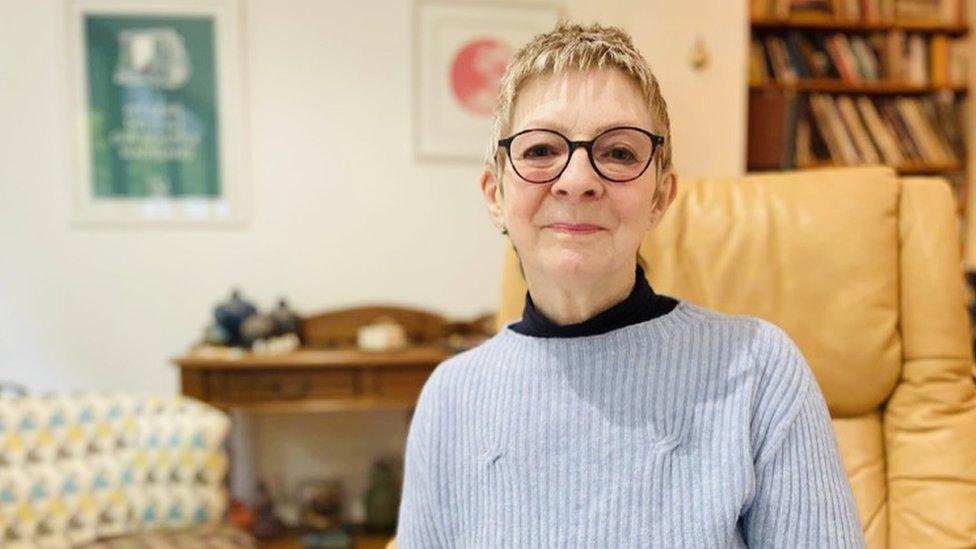One in 20 suffer long-term Covid effects, study finds
- Published

The Long Covid In Scotland study found effects were more likely following a severe Covid infection
One in 20 people suffer long-term effects after Covid, a study has found.
The long Covid in Scotland study, led by the University of Glasgow, found that effects were more likely to occur after severe infections requiring hospitalisation.
The research showed older women from deprived communities were most at risk.
The study, set up in May 2021, found those who were vaccinated before becoming unwell appeared to be protected from some long-term symptoms.
The most reported symptoms included breathlessness, chest pain, palpitations, and confusion or "brain fog".
Symptoms could range from mild to moderate - but having long-term effects might not necessarily result in a long Covid diagnosis.
Long Covid was more likely in those with pre-existing physical and mental health problems, such as a respiratory disease or depression.

'Elephant on my chest'

Jayne Gemmell is still living with the long-term effects on Covid she contracted in March 2020.
Jayne Gemmell, 55, from Cairneyhill in Fife, contracted Covid in March 2020 and is still living with the effects. She already had ME and fibromyalgia but was able to work full-time.
Jayne said the day she fell ill with Covid she felt extremely tired, although she didn't consider it significant.
"The second day I just felt like I had an elephant sitting on my chest," she said. "I just had this overwhelming fatigue and overwhelming discomfort and tightness and heaviness.
"I took some time off work expecting that I might need a few days or a week and actually never back to work."
Jayne says she has been left with worsened chronic fatigue and pain. Medics also believe she has developed asthma.
She said she was "very grateful" to the NHS and Chest Heart & Stroke Scotland who have supported her rehabilitation.

The Glasgow University research found that 6% of people felt they had not recovered at all, while 42% reported feeling only partially recovered between six and 18 months following infection.
Jill Pell, professor of Public Health who led the study, said: "While most people recover quickly and completely after infection with Covid, some people develop a wide variety of long-term problems.
"Therefore, understanding long Covid is essential to inform health and social care support."
The study also found that those with asymptomatic infection had no long-term impact.
It used 33,281 people who had developed laboratory-confirmed Covid infections and 62,957 never-infected individuals from the general population.

'You feel like a forgotten tribe'

Jane Ormerod felt like she had tonsillitis for about four months after catching Covid
Jane Ormerod from Aberdeen, first caught Covid in March 2020. It began with a bad headache and a sore throat.
She said: "I didn't have a cough at that time. I had a high temperature, shivers and a rapid heart rate. My breathing wasn't good."
After a couple of weeks her symptoms seemed to improve although she felt like she had tonsillitis for about four months.
Jane, 66, also started experiencing new symptoms such as dizziness and sore joints. She felt like Covid had taken away her energy.
She added: "For all of us with long Covid, you feel like a forgotten tribe. Many of us are still struggling to get treatment, diagnosis - to even see somebody."

Dr Andrew McAuley, consultant healthcare scientist at Public Health Scotland, said the study provided important evidence on long Covid.
He added: "We know that being fully vaccinated can reduce the likelihood of developing long Covid and therefore we encourage those who are eligible to take the opportunity to enhance their protection by getting vaccinated."
The Scottish government said long Covid was "debilitating for the physical and mental wellbeing" of those affected.
A spokesperson said: "We're investing an initial £3m from our Long Covid Support Fund to provide NHS boards and partners with additional resource to deliver the best local models of care for assessment, diagnostic tests, and support for the treatment or management of symptoms."
Health Secretary Humza Yousaf told BBC Scotland it was up to individual health boards how they spent the funding.
He said some had appointed a care co-ordinator while others had used it to help children with long Covid.
He added: "If I could reiterate one message from that study it would be please get yourself vaccinated, if you are eligible."